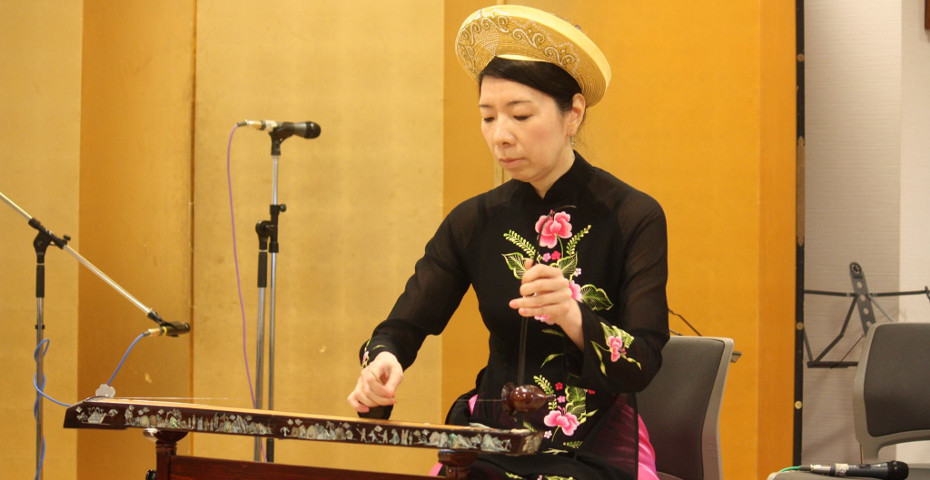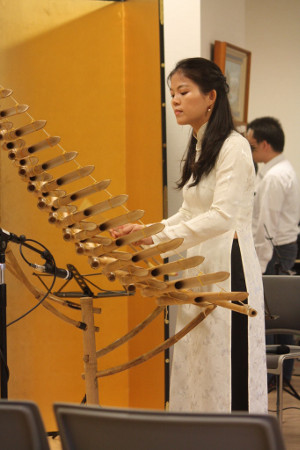Once a year, the lilt of the t’rung and the rise and fall of the sounds of the danbau transport audiences at a charity concert in Tokyo to the mountain regions of Vietnam. The performers are Vietnamese migrant workers in Japan, and this year’s concert featured a choir called “Cecilia”, that usually serves at the Vietnamese Sunday masses at St Ignatius Church next to the Jesuit Tokyo Social Center.
“The concert made our imagination fly to Vietnam and we enjoyed our stay there for more than two hours,” shared Fr Ando Isamu SJ, head of the Jesuit Tokyo Social Service Center Migrants Desk, after the show in June.
The hall was filled to capacity as the performers played songs popular in the rural areas of Vietnam on the Vietnamese monochord ‘danbau’ and bamboo xylophone ‘t’rung’, and sang duets and solo numbers accompanied by piano, flute and violin.
The influx of migrant workers from Vietnam, under the umbrella of official technical training, had inspired Fr Isamu and his team to try different ways of working with the migrants for the welfare of their own country. They work closely with Japa Vietnam, a non-government organisation based in the Jesuit Tokyo Social Center, on development programmes in Vietnam and Cambodia with private funds from Japan.
The charity concerts are an event that Japa Vietnam has mounted with Vietnamese migrant workers for about 10 years now, to introduce traditional Vietnamese music to the Japanese public. It was through these concerts that several Vietnamese Catholic communities learnt of the development programmes Japa Vietnam supports in their home country. Some of these communities, such as the one that gathers monthly in St Ignatius Church, have almost 1,000 young members. Most of them left Vietnam to work in Tokyo to support their families back home and to assure their own futures.
“They invited us to visit their communities to raise funds during mass to help finance the development programmes,” Fr Isamu shared.
He and his staff took them up on their invitation and have made annual visits for the last five years. The donations have become a significant source of development funding.
“About 25 percent of the budget for the projects is now covered by the financial donations of Vietnamese migrant workers,” said Fr Isamu. “Their generous financial contributions always astonish our members.”
This work with Vietnamese migrant workers in aid of development projects in Vietnam is another aspect of the work of the Migrants Desk. In addition to providing pastoral, educational and legal services, it tries to accompany migrant workers closely like teachers do with their students.
“In order to raise social awareness concerning the situation of migrant workers and expose their big contributions to Japanese society we need to be close to them and listen to their pleas,” said Fr Isamu.
Main story image: A Vietnamese performer playing a folk song on the danbau








